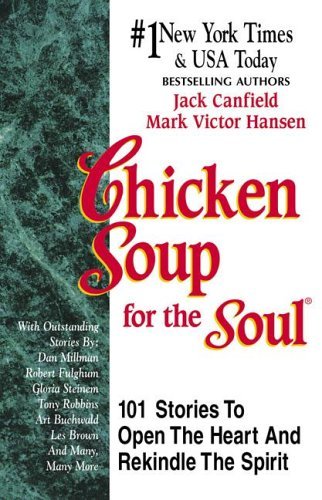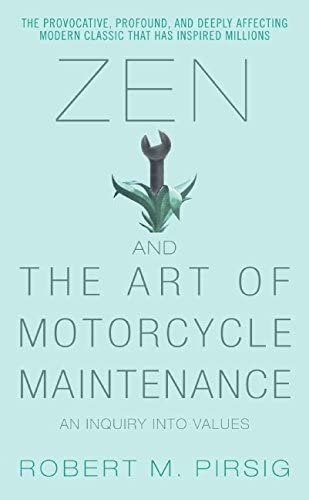5 Things to Avoid If You Want to Get a Publishing Deal for Your Book
Hi author! As Chef Gordon Ramsay would say, “Let’s get one thing absolutely clear . . .
“You need to bring your ‘A’ game” if you want to find a publisher for your book.
The book manuscript equivalent of a soggy, undercooked, cardboard-tasting, re-heated, icky cafeteria food meal awful just isn’t going to get the job done.
If you want to know . . .
how to get a publishing deal for your book,
or if you find yourself asking . . .
“Why can’t I get published?”
this article is for you.
NOTE: While this is geared toward nonfiction authors, everyone will find it useful.
Getting a traditional publishing contract starts finding the right publisher.
See your options—big 5, non-big 5, you name it—and find out what they’re looking for.
Get the most up-to-date list of book publishing companies for nonfiction authors in the US—
With or without an agent required, find your match.
Here are the 5 reasons authors get rejected by publishers—and how to improve your odds of getting a book contract.
Reason #1. “It just isn’t a fit.”
Ah, the famous line “It’s not you, it’s me” that no one wants to hear! Everyone has heard that one before.
They might be letting you down easy or not giving you the time of day to explain it.
They might not publish that kind of book (anymore).
They might have just published or just acquired something similar.
They might not understand the topic or not know a good thing when they see it (looking for love in all the wrong places), and it might really not be anything you did or didn’t do.
They might even ghost you.
Here are some practical tips to increase the odds of getting your book published:
Query or submit somewhere else, and if you are querying publishers one at a time, make it clear why your book is a fit for them.
Avoid publishers who don’t seem like a fit or who don’t publish books like yours.
Don’t take it personally. It might be bad timing. Their priorities may be off. A lack of interest from a book publisher may say more about them and less about you.
Reason #2. Your book proposal / book manuscript didn’t wow them.
This might hurt. . . .
It may be that neither the premise nor the prose impressed them.
They just didn’t see the value or importance of that book for them to want to invest in it.
Your writing style, or even your grammar, just didn’t get the job done. Maybe they were bored.
You get a publishing deal by offering something original, whether that’s the subject, the angle, the style, or the author.
You get a publishing deal with an edited manuscript that is exceptionally well written.
Something about your book has to be original. Distinctive. But not so original that no one can compare it to anything else out there.
If they can’t compare it, they won’t know how to sell it.
Here are some practical tips to increase the odds of getting your book published:
Wow them with an excellent, edited, and compelling proposal.
Wow them with a polished writing sample or manuscript—especially a great first chapter.
Wow them by making it clear why they should care about it. You can create little surprises with a great title and fun chapter titles.
Write an engaging yet efficient proposal and hire a professional editor. Make sure you’re submitting your best manuscript.
You can further improve your odds of becoming a traditionally published author.
1. Read one of the best 3 books on getting published.
2. Find out what a book proposal coach or editor can do for you and hire one today.
Reason #3. Your “platform” isn’t big enough.
This one hurts, too:
Publishers are looking for a sure thing. And when they don’t think you have enough followers to guarantee a certain number of sales, most publishing houses will pass on you—no matter how good your book is.
You need a “platform.”
For the largest of publishers, you need a big enough (read: ideally 10,000 or more) following on social media or a compelling enough background.
There’s a question they’ll ask themselves: “Can we sell at least x number of books?” And the answer is no, or even “maybe,” they won’t take the chance.
Maybe this is your first book, and they don’t want to deal with an inexperienced author.
And maybe they don’t see how you’re going to promote or sell the book on your own.
Here are some practical tips to increase the odds of getting your book published:
You might not have an email list or website. Get working on that! And build your following and your network.
If you can secure high-profile endorsements before pitching to agents and/or acquisitions editors, that may be helpful, too!
Don’t hold back if you have a compelling story. Practice telling your story.
And by all means, if you have a large following on social media, a YouTube channel, or an email list—as in approaching 10,000—say so!
And don’t forget this: There are plenty of great publishers out there with a lower barrier of entry but who do a great job by their authors.
See my related article: “How to Get a Big 5 Publishing Deal”
Reason #4. Your book is trying to do too much.
This one is kind of a catch-all, but bear with me.
One of the biggest things that trips up authors is a book that lacks a clear focus.
A nonfiction book needs to solve a single problem. It needs to have a unifying theme. Even a biography needs a unifying theme. A fiction book needs a defined genre, with the tropes that go with that genre.
Similarly, books often get rejected because the ideal reader isn’t clear or specific enough (or isn’t what the publisher wants it to be).
Here are some practical tips to increase the odds of getting your book published:
Don’t try to do too much with your book. Focus. And write it with a specific reader in mind.
Be able to clearly and compellingly answer these questions:
What is your book about, in a sentence or two? What problem does it solve, what void does it fill, what case does it make?
Who is your book for? You can’t have three or four answers to this question and expect to get a publishing deal.
If unsure, ask yourself, “Does this serve Jane Reader?” “Is this what Jane Reader wants?” And make sure the answer is “Yes.”
Compare yourself to another book? It has the [insert the blank] of Book A with the [insert the blank] of Book B. It’s a [fill in the blank] version of [Book C]. It has the [insert of the blank] of Book D, but [insert the blank].
Reason #5. Your book is too long.
I wrote about the typical word count for various types of nonfiction books.
Production costs and pricing sweet spots, industry conventions, and buyer/reader psychology dictate these word counts.
If your book is too long, it’s likely too wordy, trying to do too much, doesn’t have a clearly defined ideal reader, or isn’t similar to other popular books in its genre. (Shorten your book manuscript with these 12 tips.)
Here are some practical tips to increase the odds of getting your book published:
If you want to become a published author, write an average-length book.
Make your proposal clear and concise.
For a nonfiction book, you’ll want 6 to 12 chapters of roughly equal length.
And here’s something I see authors forget: When you query an agent or publisher and when you write a proposal, tell them your word count! If you’re within their ideal word count range, that may help!
To recap,
Authors get rejected by publishers / acquisitions editors when trying to get a book published for 5 reasons:
Reason #1. “It isn’t a fit.”
Reason #2. You didn’t wow them.
Reason #3. Your “platform” isn’t big enough.
Reason #4. Your book is trying to do too much.
Reason #5. Your book is too long.
To get a publishing deal, you need 5 things.
1. You need a book concept that matches what publishers are looking for, at that moment in time—and it needs to be somewhat original but not too “out there”.
2. You need a book manuscript (and proposal) that is written exceptionally well, with no “holes” in it.
3. The publisher will need to feel they can sell “enough”/a lot of books to make it worth their while.
4. Your book can’t do too much—to the point it is unfocused or it’s unclear exactly who it’s for.
5. Your book can’t be too long or too wordy.
Now that you understand the expectations traditional publishers have, you’ll be better equipped to get that publishing deal!
Getting published is not easy. It’s time to call in backup!
Turn your query and book proposal into the polished, persuasive, and irresistible pitch that sways literary agents and/or traditional publishers.
Learn the secrets that successful authors use to write a query and book proposal for a traditional publisher—big 5, trade press, or university press, get a publishing contract—and navigate the publishing process with ease and confidence.
If Getting a Publishing Deal Is Still Elusive . . .
You may discover firsthand that, despite your efforts and your openness to constructive advice,
Great books get rejected by publishers every day.
Remember the book Chicken Soup for the Soul? It was rejected by 144 publishers before finally finding a publisher. It inspired a series of 250 books, and a whopping 500 million copies were sold. Heck, it even led to a lifestyle brand.
Then there’s Robert Pirsig’s Zen and the Art of Motorcycle Maintenance. It got 121 rejections before a publisher finally picked it up. It eventually sold 5 million copies.
A degree of patience, persistence, and even a willingness to make changes to your manuscript will be required if you want to become a traditionally published author.
But 100+ rejections?
If you can’t, or won’t, write your book to avoid the 5 reasons authors get rejected by publishers—
If you don’t have the time to wait a while and keep knocking on doors with the cheerfulness of a Girl Scout selling Girl Scout Cookies (and with an experienced helper)—
or you want to do things your way to ensure that your vision gets carried out,
then self-publishing, or even hybrid publishing, may be the way to go.
In any case, knowing what you now know will help you write a better book and probably sell more copies.
You can do this!
You might also like these nonfiction author resources on how to get a book published:
What Are the Big 5 Publishers and What Are the Keys to Getting a Big 5 Publishing Deal?
The Nonfiction Publishing Companies List—Traditional Publishers in the US
Daniel Tortora book coaching packages and author coaching calls
P.S.: As you can probably tell from the GIF, I like the show MasterChef!
I hope whatever book stuff you’ve got cooking comes out “on point,” as Gordon Ramsay would say. “Let’s get one thing absolutely clear”: It’s been a “treat” having you read this!




